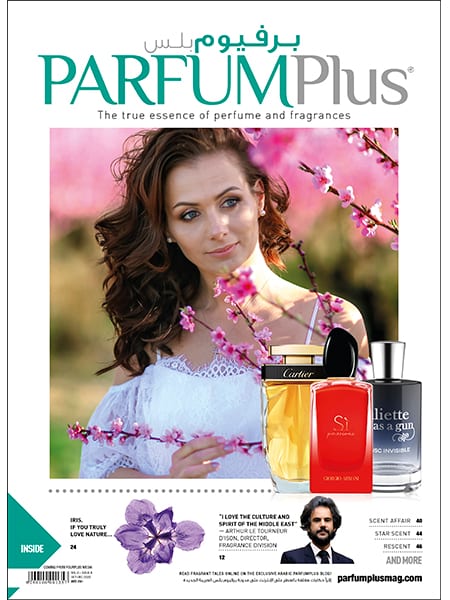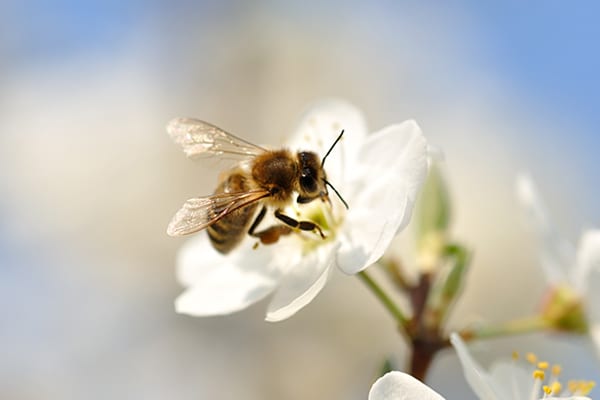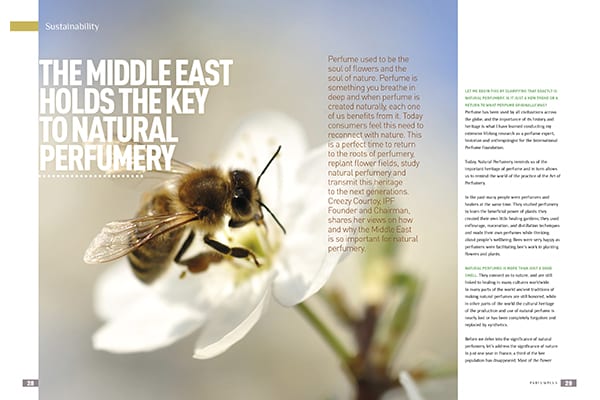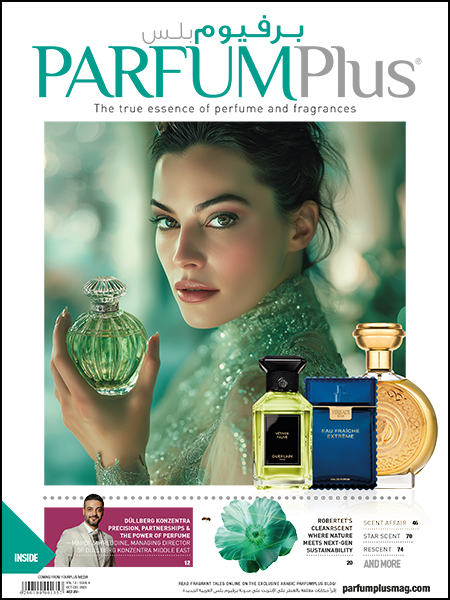
The Middle East Holds The Key To Natural Perfumery
Perfume used to be the soul of flowers and the soul of nature. Perfume is something you breathe in deep and when perfume is created naturally, each one of us benefits from it. Today consumers feel this need to reconnect with nature. This is a perfect time to return to the roots of perfumery, replant flower fields, study natural perfumery and transmit this heritage to the next generations. Creezy Courtoy, IPF Founder and Chairman, shares her views on how and why the Middle East is so important for natural perfumery.
Let me begin this by clarifying that exactly is natural perfumery. Is it just a new trend or a return to what perfume originally was? Perfume has been used by all civilizations across the globe, and the importance of its history and heritage is what I have learned conducting my extensive lifelong research as a perfume expert, historian and anthropologist for the International Perfume Foundation. Today, Natural Perfumery reminds us of the important heritage of perfume and in turn allows us to remind the world of the practice of the Art of Perfumery.
In the past many people were perfumers and healers at the same time. They studied perfumery to learn the beneficial power of plants: they created their own little healing gardens; they used enfleurage, maceration, and distillation techniques and made their own perfumes while thinking about people’s wellbeing. Bees were very happy as perfumers were facilitating bee’s work in planting flowers and plants.
Natural Perfumes is more than just a good smell. They connect us to nature, and are still linked to healing in many cultures worldwide. In many parts of the world ancient traditions of making natural perfumes are still honored, while in other parts of the world the cultural heritage of the production and use of natural perfume is nearly lost or has been completely forgotten and replaced by synthetics.
Before we delve into the significance of natural perfumery, let’s address the significance of nature. In just one year in France, a third of the bee population has disappeared. Most of the flower fields have been replaced by real estate and the bees are losing their habitat. We need to realise that we are made by nature and we cannot survive if we continue to destroy it. Our health, our well-being and the future of our children depends on nature.
With Covid19 everyone has begun to realize the importance of breathing. The perfume you breathe goes to your lungs, to your blood and to your organs as well. It is important to control what we breathe. The beneficial power of flowers and plants is what makes natural perfumery essential to our wellbeing.
Does an education in Natural Perfumery help an existing perfumer who is already working with synthetics? If you are a perfumer and you want to blend natural with synthetics, you should know that synthetics would destroy natural. Natural Perfumes are perfumes that are composed of 100% natural materials.
But to answer the question, if it would help the current generation of perfumers, then yes it would. We all need to return to nature for more sustainability. An education in Natural Perfumery would open new doors and make them discover a new universe.
Natural perfumes is a totally different education as it involves nature and humans. If you learn natural perfumery, you will also learn the physiology of olfaction, its importance for human health and the beneficial power of plants. You will also learn how to process naturals and verify if they are properly processed. You will become familiar with how the oils worked in formulations and the synergy they produced. You will also learn the importance of sustainable packaging.
What is the ethical progression of perfumery? I was born into a family of perfumers. I created the international Perfume foundation in 1995 when I realized that perfume was not perfume anymore. It was not the soul of flowers, the bark of trees or the resins and I wanted to alert the industry they were getting off track.
I saw everything changing so fast on the european market :
- The decline of perfume bottles design. They were not precious anymore, not collectible. After 1940, perfume bottles became disposable packaging; they were no more beautiful boxes or amazing containers.
- The replacement of naturals by synthetics
This led me to my research about the history of perfume, the importance of olfaction and the protection of this heritage before we could completely lose it. As I have been collecting perfume museum art pieces all my life, I could show how important perfume was for each part of the world.
Each country has its own perfume heritage. With the support of this collection, my research and the high patronage of UNESCO we organized The Perfume Roads Exhibition at Unesco Paris. This exhibition was important for me as I could show the origins of perfume with more than just words.
In 2010, we created a new vocabulary to protect the soul of perfume. This is how “Natural Perfume” was born. When perfume will go back to what it was originally, I hope that we will call Natural Perfume “Perfume” again.
What role can the Middle East play? The International Perfume Foundation certifies Natural Perfumers and Natural Perfumery Schools. One such school is Perfumery Art Training School in Kuwait. Its founder and head teacher is Salem Aljarallah, a civil engineer with a degree in Chemical engineering who has attended many courses in perfumery in different well-known institutes and has a mastery in perfumery.
I had asked him if GCC countries could become leaders in Natural Perfumery and this was his reply. “Yes, of course. The tendency in this region is to go back to nature as it's the only trusted source and it has the depth of the God creation which wouldn't be copied by humans. Nature reflects the impression of luxury in the consumers minds in the Middle East.”
This leads me to believe that the Middle East, which has a deep history in perfumery’s past, also holds the key to the future of perfumery. And the time may be now!
Creezy Courtoy, IPF Founder and Chairman






